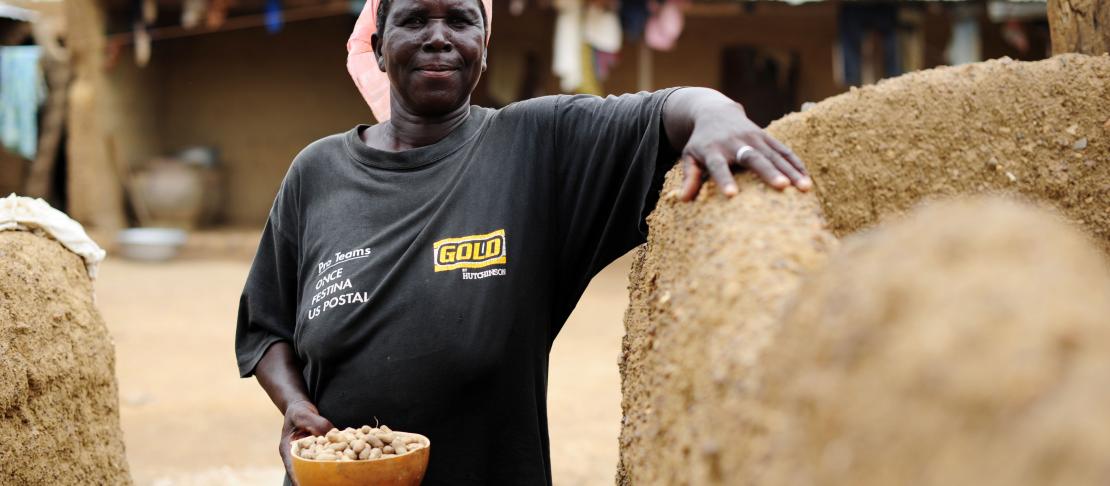Is it time to pay more attention to power and politics in climate change adaptation?

CCAFS researchers map power and influence in Ghana’s agricultural adaptation policy space. They find that a technical ‘adaptation establishment’ dominates decision making, sometimes neglecting political groups, the private sector, and farmers.
In climate change adaptation and development circles we often speak of ‘politics’ and ‘power’ as things that stand in the way of progress. We see this frequently in international negotiations where obstruction and grandstanding are common negotiating tactics by politically motivated actors. Yet this negative view of politics is altogether more widespread than that—it’s present in national planning workshops, project development, and just about any forum were complex interests are negotiated.
Because power and politics are viewed as inherently negative forces, climate change adaptation theorists and practitioners are often guilty of creating a political deficit in adaptation— that is, we choose to avoid these forces altogether. Instead, we view climate change and its responses as a purely technical endeavor, modeling impacts and using empirical data to prioritize adaptation actions (science rightly tells us that this is the correct approach!).
Furthermore, we also often associate the ‘things of adaptation success’ with institution-building alone. We say, “if only we could establish forums for stakeholder participation, create more responsive state agencies, and develop policies that adequately incorporate community concerns, we would be in a better position to respond to climate change”. And indeed, we would. But these views by themselves deny an important variable: power.
When humans are involved, so too is power. Power has a way of manipulating and building institutions itself. It governs our every interaction, from the symbolism in ancient dress that identifies a chief or elder, to the brick and concrete agricultural development office in a landscape of otherwise mud huts, to the steely land cruiser out of which climbs a group of development workers. Inadequate attention to this important force will render even the best of adaptation plans moot. Importantly, in a system dominated by uncertainty, complexity, and many stakeholder interests, power determines what information is considered credible and what adaptation responses are appropriate. It also—in the first instance—determines who is even considered a decision maker in adaptation.
Power determines what information is considered credible and what adaptation responses are appropriate
In a new peer-reviewed paper published in Climate and Development, CCAFS researchers attempt to map power and influence in Ghana’s agricultural adaptation policy space with the aim of identifying powerful actors and determining the structure of the regime. Is power concentrated among a small group of decision makers, or distributed widely across stakeholders? How does power shape decision making across actor levels? The researchers asked respondents from local, regional, and national levels to rank actor groups for their power to influence adaptation outcomes.
What they found is that power in adaptation tends to be shared between international technical organizations and a handful of state agencies— what the authors call the ‘adaptation establishment’. This establishment—made up of the same actors that dominate the development regime in Ghana—often excludes political parties, private sector actors, universities, and farmers themselves. There is, then, a very real political deficit.
The authors note that when certain groups are not perceived as powerful there is less drive to incorporate their perspectives in to decision making. When political groups in particular are excluded, the institutions and forms of representation that channel farmers’ voices to national forums are inadvertently undermined. Instead, only pre-determined technical experts are allowed a seat at the table.
When political groups in particular are excluded from decision making, the institutions and forms of representation that channel farmers’ voices to national forums are inadvertently undermined.
Ultimately, narrow participation can result in an equally narrow range of adaptation options made available to smallholders. This, in return, can reduce opportunities for truly systemic or transformational change. In fact, adaptation options globally tend to be “common and non-differentiated” — that is, they are largely the same despite the countless unique agro-ecological and cultural spaces in which agriculture is performed. These trends are partly the result of power dynamics.
Now that adaptation plans have been widely established and financing is becoming available, the logical next step in the adaptation process it to deal explicitly in power. The authors call for INCREASED politicization of certain aspects of climate change adaptation policy, especially in those processes meant to represent marginalized groups. After all, politics doesn’t always have to be a dirty word. It can help us to have our voices heard in the forums that affect our daily lives and is the primary way we participate in our own democracy. Power and politics in adaptation compel us to ask whose voice is not being heard, and how can we ensure decision makers are downwardly accountable to the masses. This requires researchers and practitioners, though, to actively “take on power as the subject of analysis, not simply an answer known in advance”.
Read more:
Sova CA, Thornton TF, Zougmore R, Helfgott A, Chaudhury AS. 2016. Power and influence mapping in Ghana's agricultural adaptation policy regime. Climate and Development.
Chase Sova is a visiting researcher at CIAT and a doctoral candidate at the University of Oxford, Environmental Change Institute.



